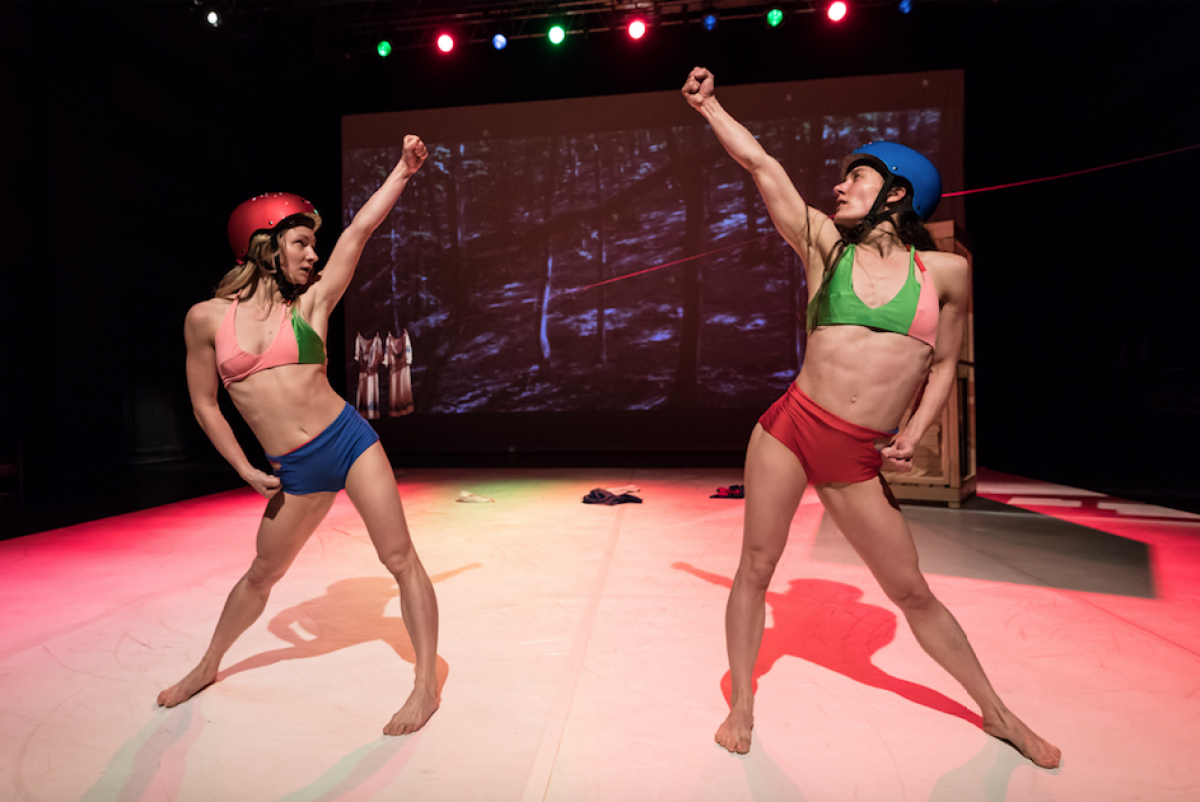Springback Academy 2019
Review

Long time no see!
Beatrix Simkó and Jenna Jalonen
What unites Europe also divides it: borders, languages, families, customs, movements. In Long Time No See! Beatrix Simkó and Jenna Jalonen form a youthful Hungaro-Finnish double act which plays on their mutual commonalities, rivalries and incomprehensions. It’s often slapstick: there are pat-a-cake folk dances and gauche playground games. It’s sometimes informative: the Hungarian alphabet literally outpaces the Finnish (the dancers take a step for each letter); Finns and Hungarians share traits of melancholy and suicidal depression. Occasionally it’s kitschily comic, with Eurovision dance-offs, wife-carrying races and a sauna cabin that exposes cultural as well as physical sensibilities (unabashed Finnish nudity, vestigial Hungarian modesty, alcohol as social lubricant).
Though somewhat cobbled together (like Europe?) it is always entertaining enough to keep us onside. Still, it’s hardly deep: the women present straightforward national(ist) identities, uncomplicated by others and with little self-examination. Fun then, but a bit flimsy.
Sanjoy Roy
In Long Time No See, Hungarian Beatrix Simkó and Finnish Jenna Jalonen hurtle madly through a history of their friendship and their respective cultures – the two most depressed countries on Earth.
This is a kitchen sink piece, incorporating acrobatics, body percussion, traditional dance, spoken word and multimedia. All of these are used to careen through a series of vignettes, including coy introductions, a wife-carrying contest, a drunken naked sauna session, and a crash-helmet-and-bikini Eurodisco breakdown – with shades of the Vengaboys and a cabin crew safety demonstration.
It’s dynamic, hilarious, and skilfully executed. It only falters on structure, as it feels like a loose-knit sequence of sketches – the sauna scene and the more traditional dance sequence that follows are both overlong, and the latter feels aimless. It’s a relief when it’s interrupted by one last madcap skit, which ends the piece on a giddy high.

